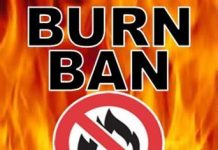People [in crisis] don’t always know that I’m available,” says Sean Hollen, Hoquiam Police and Fire Chaplain. “Because they don’t know what a chaplain is, they say they don’t need one.”
 According to the Merriam Webster dictionary a chaplain is “a clergyman officially attached to a branch of the military, to an institution, or to a family or court.” A chaplain may also be part of a municipal police or fire department. The position is voluntary and provided as a service for people who may need comfort or support during or through a crisis period in their lives. Part counselor, part comforter, part advisor, part care-giver – the chaplain’s job is multi-faceted.
According to the Merriam Webster dictionary a chaplain is “a clergyman officially attached to a branch of the military, to an institution, or to a family or court.” A chaplain may also be part of a municipal police or fire department. The position is voluntary and provided as a service for people who may need comfort or support during or through a crisis period in their lives. Part counselor, part comforter, part advisor, part care-giver – the chaplain’s job is multi-faceted.
Sean Hollen is just such a man. He came to the Harbor to plant Harbor Calvary Chapel church in Aberdeen about a dozen years ago. During the planting season he drove a school bus to make ends meet, but his heart for the people wanted to do more.

“I wanted to impact my community in just more of a hands-on way. I felt like the Lord wanted me to – to make it a better community.”
And so, one day Sean walked into the offices of the Hoquiam Police Department to speak with Rick Thomas, the Chief at the time, but it wasn’t the right time. A year later, Jeff Meyers became Police Chief and asked Sean to come by and see him.
“I came into the Chief’s office and Hoquiam Fire Chief Ray Pumphrey was there and Deputy Chief, at the time, Paul Deans,” recalls Sean, laughing. “There were too many chiefs and not enough warriors.” They all said they were enthusiastic about having a chaplain and that Sean could fill the position on one condition: that he attend the Chaplain’s Academy in Burien, Wash. After a week of intensive training he was appointed in a civil ceremony.
“I was introduced as the City of Hoquiam’s Chaplain,” he laughs at the sheer immensity of that task, “the whole city!” Well, the task hasn’t overwhelmed him and he’s been the Hoquiam Police and Fire Chaplain for more than ten years now. Sean says that the city of Aberdeen has shown interest in having a Chaplain as well, but that, as a full-time pastor, he can’t take that on, too. He does help out as he is able when he is called upon by the sister city, but it’s not the same as he has no regular presence there.
“It really is a ministry of presence,” says Sean, explaining that “being there” builds trust and awareness.

Photo credit: Gregory E. Zschomler
“Chaplain ministry is two-fold,” he says. “First, it’s to the men and women who are serving—the first responders. They’re in a high-stress job [and] adrenalin is part of their life.”
Often called to a scene, he can help officers and firefighters through emotionally charged situations. He says the very nature of their work can deeply affect them and that work life affects their family life. too. Sean isn’t only there to help these first responders with what they see and do on the job. He’s there for their personal life, too, whether it be parenting needs, marriage counseling, anger issues or simply someone to talk to.
Sean says his position allows officers and firefighters a “professional confidentiality” and that they “have the freedom to talk with me about anything without ramifications. They can just share their hearts without fear of repercussions.”
He helps in other ways, too. “I’m always called to a three-alarm fire,” says Sean. “I set up a recovery center and I’m there to serve.” He makes sure the crew keeps hydrated and encouraged throughout the tiresome work of fighting a fire.
“The second [facet] is ministering to the people,” says Sean, referring to the flip-side of chaplaincy care. When called to a crisis situation he provides comfort and ministry to families impacted. “I ask questions like: ‘Do you have friends or family to call?’ or ‘Is there a pastor or priest you’d like me to call?’” And, Sean tries to answer the hard questions as best he is able and, if need be, helps with funeral arrangements. He knows people need to deal with their grief. “It’s okay to grieve,” he says. “There is a need to grieve, but then it’s time to get back to living.”

“I find it very fulfilling,” he says. “I want to be there in crisis to help people back to life.” He lets them know that, “tomorrow is going to happen. Not all is lost. Though it may seem like it for the moment, there is tomorrow. There is hope.”
And there really are other facets to the job as well. Chaplain Hollen is there in ceremony when first responders are honored for their service, at retirements, funerals and sometimes even weddings. He gets to participate in events like Shop with a Cop, too.
Above all, he says—knowing this is his highest form of support, “I get to pray for our officers and firefighters all the time.” Though his job as “Chaplain to the City” can be heart-rending, it is also a joyous privilege.











































